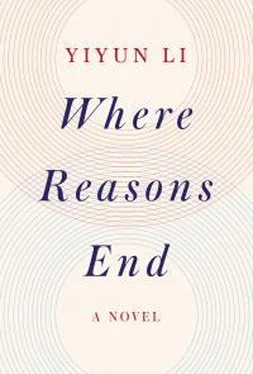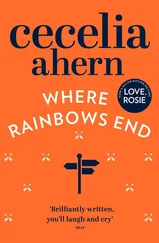I’ve begun to understand, I said, why people hold on to things.
I’ve begun to understand the opposite, he said. All things tangible, like all nouns, are dispensable.
What’s indispensable then?
Adjectives.
That’s questionable, I said. What’s indispensable, really? I get confused with that question.
Nouns for most people, he said, because living in a world defined by nouns is obligatory.
I thought about his reply. Who can be free of nouns? Fathers, mothers, sons, daughters, friends, lovers, housing, food, career, retirement. We are brave children of braver parents, born into a web of nouns, and we are all like Charlotte, weaving a web for ourselves.
Except Charlotte chooses adjectives, Nikolai said, and she does it to save someone else.
Ah, I said.
You can’t answer the question What’s indispensable if you don’t understand what’s dispensable.
So the dispensable serve the indispensable, like the foundation of a pyramid and the pyramid itself?
That’s a very bad analogy, he said.
Puissant, eupeptic, liminal, without nouns these adjectives of yours have little concrete meaning, I said.
The world would be a wilder place for imagination if you let adjectives go free without having to modify something, he said.
Imagination is a rubber ball, a dime apiece, I said.
What?
Oh, only a line I put in a recent story.
Rather facetious, isn’t it?
What can be imagined, I wanted to say, is like what can be put into words. Nouns, verbs, adjectives, adverbs, pronouns, prepositions—it doesn’t matter how many of them come together, they fall short together. I could imagine Nikolai arriving five minutes earlier than his brother, recounting the day while popping a cashew into his mouth now and then. I could imagine the confusion of our dog when I was unpacking and he was sniffing boxes with Nikolai’s board games and books and a set of tools for making oboe reeds. Do you remember him, I had wanted to ask the dog, you, who have known him all your life? I could imagine rewinding life so I would again be making Nikolai’s favorite dishes and watching him eat, or I would be listening to the conversation between him and his brother. I could imagine rewriting life so I would be buying tablecloths and cake pans and curtains and flowers with Nikolai. These imaginations made it easier for me to feel sad, to weep even, but the tears were a veneer over the unspeakable. It was what I could not imagine that made the veneer dispensable: the bad dreams he had not told me over the years, the steps he had walked and the thoughts he had gone through on his last day, the adjectives he would have taught me, the days and the years ahead—with or without him. The unspeakable is a wound that stays open always, always, and forever.
Oh gosh, he said. A wound open—that makes you sound like a mediocre self-help book.
Wouldn’t a self-help book rather be talking about healing? I said. No self-help book would sell if it told you that the wound would stay open.
True, he said. Still, an open wound, what bad language you use now.
There is no good language when it comes to the unspeakable, I thought. There is no precision, no originality, no perfection.
Oh fine, he said, if you insist.
Fear not, I said. I would be the last person to write a self-help book.
Wouldn’t a non-self-help book be more interesting?
A book about not helping oneself? I asked. A self-sabotaging book?
A book helping non-selves, he said. Like me.
It’s not funny, I said.
It’s only sensible, he said. If you’re willing to read, you can find any number of books that claim to help you with grief or mourning or dealing with losses and traumas. There’s no book helping me.
Helping you with what? I asked.
What’s new to you is new to me too. How do I know what’s a right way, or a good way, or a healthy way, or a mindful way to be now?
He had a point. Neither of us had any propensity toward religion or metaphysics. We had agreed to a conversation, sustained by my willfulness and his willingness. My willfulness, seen by the world as lunacy, might be pitied and forgiven, but my willfulness was also to believe in those who would not take this as insanity. His willingness was harder to read. Why stay present and sharp as though death had not left a smudge….What if, I said, any way you are is a good way?
Sounds self-helpy, he said.
To think about it, perhaps there’s nothing wrong with self-help. All selves need some help, I said.
Say, Nikolai said, if a self is seeking help, is it because it wants to be better at being itself, or being like others?
Oh, I said. I’m not an expert on that.
Imagine a self-help book wearing this blurb on the jacket: the secret to happiness—to be just like a million others.
Then a self-help book is to help a self to be better at being itself, I said.
Mathematically it doesn’t make sense. How can a book help a million selves when each self is different? So everyone has to have his or her own version. Each version bears a dedication: to my most precious self, which is unlike any other self.
Please don’t be flippant, I said.
I’m trying to understand this as assiduously as you are.
I suppose it’s like planting new trees. Each tree is unique, but to unfriendly nature and careless people all trees must look similar. A few universal stakes can help them stand.
I so hate it when you use analogies.
Is it really bad? I asked.
Unhelpful, he said. You talk about trees all the time.
These days my mind often wandered to trees. Is parenting not staking? We turn our torsos into determined wooden sticks, our arms into durable straps, and our hearts into gentle wraps around the young bark. We hold on to the saplings, vowing not to hurt them, hoping for their growth, but children are not trees. Sometimes they want to go their own ways—walking, running, flying—without feeling tethered. Children don’t always put down their roots.
So much at stake, isn’t it? Nikolai said.
Please don’t make fun of me, I said. The question—what’s at stake—was a perennial one in the classroom when my students discussed fiction. I had told Nikolai once that I had developed some allergic reaction to it.
All the same it would be much easier for parents to only raise trees, no? he said.
Even trees die, I said. I told him about a visit to a museum years ago, where I followed an arborist and the museum director around the garden. These trees here will die in about a hundred years, the arborist said in front of a grove, and explained that the museum should start thinking of replacements sooner rather than later.
A hundred years is a long time, Nikolai said. You wouldn’t complain about not having enough time.
Losing a child, I said, has nothing to do with how much time a parent has already had.
Perhaps, Nikolai said. I feel bad for you. You really didn’t think through everything before you had children.
There might not be any baby born if a parent were able to think ahead about everything, I said. Yet I wondered if that was true. Had I not for years been preparing myself for losing him, pre-living the pain, even?
Why did you have children, he asked, if you knew this might happen?
Even the least optimistic person wants to have some hope.
Wouldn’t that be wishful thinking, the hope you talk about?
Possibly.
If you understand it as wishful thinking, why are you still sad then?
Why, I said. Because preparing is not experiencing. Pre-living is not living. I will be sad today and tomorrow, a week from now, a year from now. I will be sad forever.
I thought you said you took forever out of your dictionary.
Once upon a time, I said. You put it back for me.
Читать дальше












